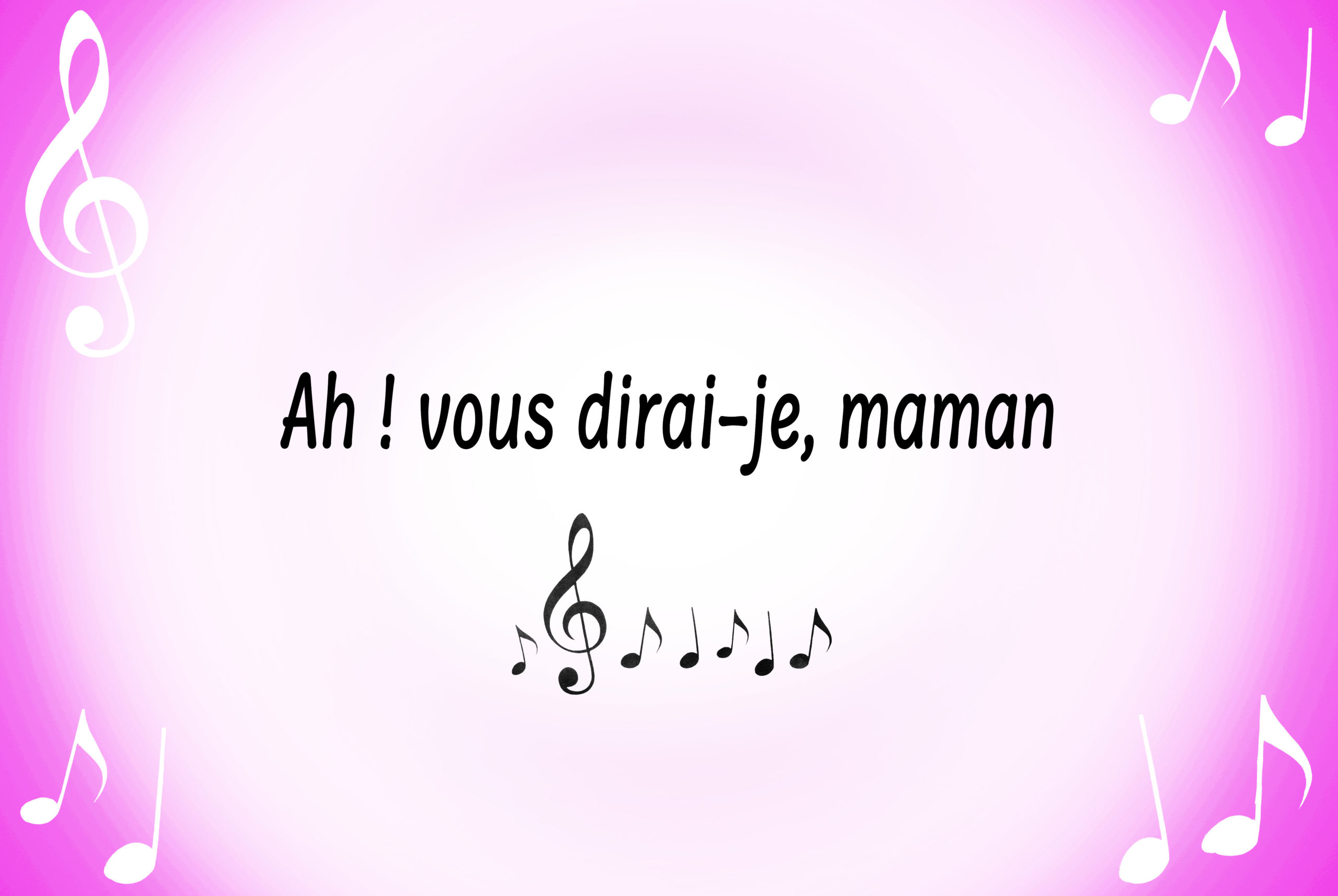Ah vous dirai-je maman (also known in English with the melody Twinkle, twinkle Little Star) is a traditional French song with lyrics dating from the 18th century.
The story of the song
Regarding the origin of the song, the Alsatian librarian and folklorist Jean-Baptiste Théodore Weckerlin (1821-1910, also known by the pseudonym Marc Giroflée) wrote:
"The earliest date I can cite for Ah vous dirai-je maman is 1740, followed by Les Folies de Coraline, a play performed in 1745 at the Comédie italienne."

Photo: Jasmina_K via Envato Elements
The lyrics
According to Martine David and Anne-Marie Delrieu, children's lyrics only appear in collections from the end of the 19th century, when primary school became compulsory in France.
Furthermore, the lyrics of Ah ! Vous dirai-je, maman are a parody of the original lyrics, an anonymous love poem, "La Confidence naïve" ("The naive Confidence"). Check out the poem here.
However, as the original lyrics were not suitable for children, they have been changed to a more suitable version.

Photo: Les_am via Envato Elements
The melody
The melody was published in 1761.
Thus, the combination of melody and lyrics appears for the first time in Le Chansonnier François, a collection of songs dating from 1760-1762.
But the melody was popularised in particular by the twelve piano variations (1781 or 1782) by Wolfgang Amadeus Mozart, who is often wrongly credited with the composition of the melody itself. The first edition dates from 1785.
Adaptations of the song
The melody of Ah vous dirai-je maman has been applied to numerous lyrics in multiple languages :
- "Twinkle, Twinkle, Little Star"
- the "Alphabet Song"
- "Baa, Baa, Black Sheep"
- "Brilla Brilla la Stellina" (Italian)
- "Brille, brille, petite étoile" (French)
- "Quand trois poules vont aux champs" (French)
- "Morgen kommt der Weihnachtsmann" (German)

Photo: o1559kip via Envato Elements
Ah ! Vous dirai-je, maman
Lyrics, music, free download... let's learn more about the popular song:

The lyrics in French
The original song of Ah ! Vous dirai-je, maman has 3 verses.
The French lyrics of the nursery rhyme exist in several variations. The following one is one of the most common versions:
Couplet 1
Ah ! vous dirai-je, maman,
Ce qui cause mon tourment.
Papa veut que je raisonne,
Comme une grande personne.
Moi, je dis que les bonbons
Valent mieux que la raison.
Couplet 2
Ah ! vous dirai-je, maman,
ce qui cause mon tourment.
Papa veut que je demande
de la soupe et de la viande...
Moi, je dis que les bonbons
valent mieux que les mignons.
Couplet 3
Ah ! vous dirai-je, maman,
ce qui cause mon tourment
Papa veut que je retienne
des verbes la longue antienne...
Moi, je dis que les bonbons
valent mieux que les leçons.
Translation of the lyrics into English
Here is an approximative translation into English:
Verse 1
Ah! shall I tell you, Mama,
What causes my torment.
Dad wants me to reason,
Like a grown-up.
I say that candy
Are better than reason.
Verse 2
Ah! shall I tell you, Mama,
what's causing my torment.
Daddy wants me to ask
for soup and meat...
I say that sweets
are better than sweets.
Verse 3
Ah! shall I tell you, Mama,
what's causing my torment
Daddy wants me to remember
the long antiphon of verbs...
I say that sweets
are better than lessons.
L'Alphabet
There is also another version in French, English and German which is sung to the tune of Ah vous dirai-je maman. It is used to memorise how to pronounce the ABCs (L'Alphabet) in these languages.
Quand trois poules vont aux champs
The traditional French nursery rhyme Quand trois poules vont aux champs (When three hens go to the fields) is also sung to the tune of Ah vous dirai-je maman :
Quand trois poules s'en vont aux champs
La première va devant
La deuxième suit la première
La troisième vient la dernière
Quand trois poules s'en vont aux champs
La première va devant
Translation of the lyrics into English
Here is an approximative translation into English:
When three hens go to the fields
The first one goes ahead
The second follows the first
The third comes last
When three hens go to the field
The first one goes in front
Brille, brille, petite étoile
The traditional French nursery rhyme Quand trois poules vont aux champs (When three hens go to the fields) is also sung to the tune of Ah vous dirai-je maman :
Brille, brille, petite étoile is the translation of the famous English lullaby for children Twikle Twikle little star.
It is one of the most popular English children's songs and is sung to the tune of Ah! vous dirai-je, Maman. It was adapted with a poem by Jane Taylor (The Star). The song was published in 1806 in a collection of poems called Rhymes for the Nursery.
Couplet
Brille, brille, petite étoile
Dans la nuit qui se dévoile
Tout là-haut au firmament
Tu scintilles comme un diamant
Brille, brille, petite étoile
Veille sur ceux qui dorment en bas


